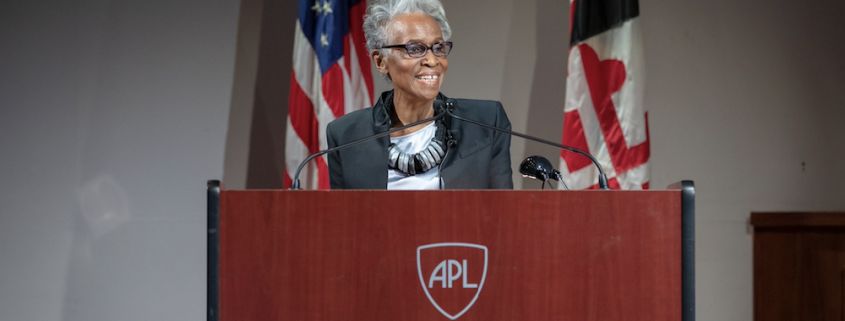Journalist discusses media representation

At only 23 years old, Dorothy Gilliam became the first black woman to write for The Washington Post. Over the course of her career, she helped cover the civil rights movement while personally overcoming challenges with racism and sexism.
In a conversation with associate professor of journalism Bill Celis, Gilliam discussed her career as a black female reporter and the importance of diversity in media. The event was held as a part of the Annenberg Director’s Forum at Wallis Annenberg Hall.
Gilliam began her work as a reporter at The Washington Post almost immediately after graduating from Columbia University. She later served as an editor and wrote columns for the publication, all while focusing on bringing black narratives and perspectives to the forefront of mainstream media.
“As an editor in the styles section, I was very grateful that I was able to help bring a lot of the knowledge of black culture into the larger society, the mainstream media,” Gilliam said. “I was able to hire black reporters that were very Afrocentric … I thought [it] was very important to make it possible for white people when they’re reading their newspapers … to read something that is very authentic about black culture.”
Gilliam started as a secretary at the Tri-State Defender, a newspaper based in Memphis. She said she was only sent out to report a few times before she was assigned to cover the Little Rock Nine — a group of students who were at one of the first schools to be integrated after the Supreme Court case Brown v. Board of Education.
Gilliam and a photographer traveled to Little Rock after she saw her boss at the Tri-State Defender on television harassed by protesters. She visited the home of Daisy Bates, the woman in charge of the school integration movement.
“It was there that when I really started seeing the role of black reporters in bringing the issues that blacks face every day to a larger community,” Gilliam said.
When Gilliam was working at The Post, she said she would often have trouble finding a cab that would give her rides back to the newsroom when she was on assignment in downtown Washington D.C. To make sure that she would still meet her deadlines, she said she used her secretarial training to write in shorthand while she waited in order to get a head start on her pieces.
“[Working at The Post] was at first like diving into a sea of white men carrying two invisible weights, one race, one gender, that none of them had to face, and I wasn’t sure I could really swim,” Gilliam said.
When Gilliam was traveling in the South, there was a lack of hotels available for people of color. She said that one time, she had to stay in a funeral home overnight.
“It was frightening sleeping among the dead,” Gilliam said. “But that’s what it took to do the story.”
Gilliam said she was not alone in these experiences — other black journalists had to make similar sacrifices.
“Black reporters … went places where white reporters never went,” Gilliam said.
She said white authorities were wary of allowing black reporters to cover stories, so they would often disguise themselves and hide their equipment.
“Journalism was a profession that opened new worlds, but it wasn’t for the faint of heart,” Gilliam said. “Especially for black reporters going into the South, it was like going to war.”
In 1977, Gilliam’s father Robert Maynard founded The Maynard Institute for Journalism Education, the nation’s oldest journalism organization promoting diversity in the news industry.
According to Gilliam, the Institute has trained over 1,000 reporters of different backgrounds. The Institute also trains white reporters in cultural sensitivity in reporting on communities different from their own. Following the creation of the Institute, other specific organizations for different communities of color emerged. They came together for a convention in 1993 to unify the voices of journalists of color.
“At the end of that weekend, we looked at what did we have in common,” Gilliam said. “Everybody wants to … celebrate their own group, but you make progress when you find out what you have in common that will move everybody forward. Even today, that carries through. We must work together.”
Roxanna Abdoli-Yazdi, a junior majoring in journalism, said she felt empowered by Gillian’s experiences.
“As journalism students … we can get discouraged by the process,” Abdoli-Yazdi said. “But hearing how she went through the process and all of her struggles and how she ended up super successful is just really inspiring.”

